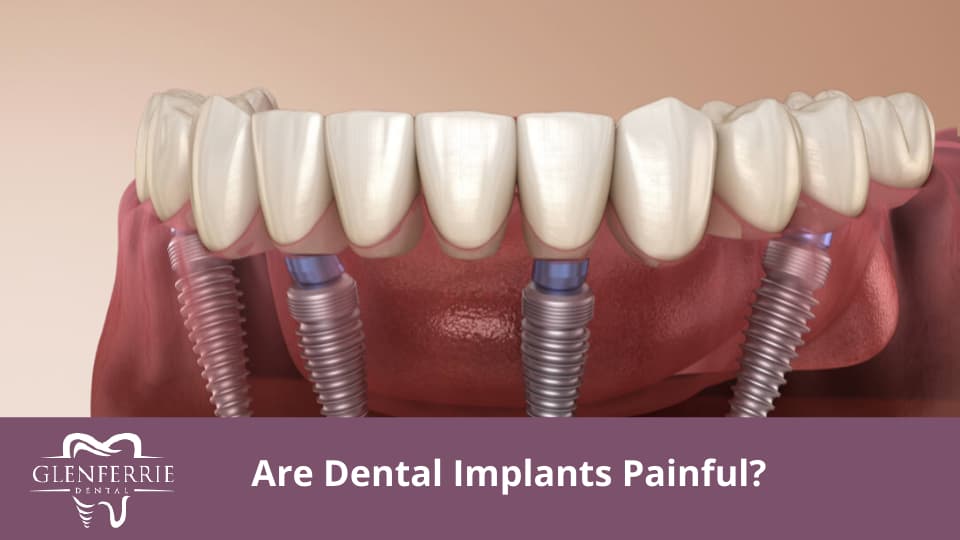Dental implants are not painful with the use of anaesthesia to numb the mouth. You may experience mild pain after the dental implantation. The mild pain surfaces after the wearing of the anaesthesia.
You may also experience discomfort during and after the implant. Speak to your dental care if discomfort persists, and ensure you follow the dental care’s prescriptions to the latest.
Understanding the Dental Implant Procedure
The dental implant in Melbourne procedure involves placing a small titanium post into the jawbone to serve as a replacement for a missing tooth.
Local anaesthesia or sedation is used to numb the area, and a small incision is made in the gum to access the jawbone. Some discomfort or pain is experienced during and after the procedure, but over-the-counter pain relievers help with the management.
The implant is then allowed to fuse with the bone over several months, a process known as osseointegration.
Once the implant has fused with the bone, an abutment, which is a small connector piece, is placed on top of the implant. A dental prosthetic, such as a crown, bridge, or denture, is attached to the abutment.
How Long Does the Pain Last After Dental Implant Surgery?
Pain and discomfort after the dental implant procedure typically last for 3 to 5 days and may only need to take medications for the same number of days.
Some patients may experience a higher level of pain than others, but it usually subsides within a week. It’s important to follow the aftercare instructions provided by the dentist to aid in the healing process.
You may experience bruising and swelling longer than 3 to 5 days, it could take 7 to 10 days to clear.
Are Dental Implants Worth the Pain?
Dental implants are popular and effective for replacing missing teeth. They allow for proper care and hygiene and can help prevent further tooth loss and deterioration of the jawbone. They also look and function like natural teeth, making them a great cosmetic option.
For many people, the benefits of dental implants outweigh any temporary discomfort or pain experienced during the procedure.
What are the Alternatives for Those Who Are Afraid of Pain?
Some patients may be candidates for dental implant alternatives such as dentures or bridges.
Painless implant alternatives are also available in the market, such as those that do not require drilling. It’s always best to consult with a dentist to discuss your options and find the best solution for your individual needs.
There are several alternatives for those who are afraid of dental implant pain, including:
1. Sedation Dentistry
This involves using sedative medications to help patients relax and reduce pain during the dental implant procedure.
2. Mini Dental Implants
Mini dental implants are smaller than traditional ones and cause less pain during and after the procedure.
3. All-on-4 Dental Implants
This is a treatment method that uses just four dental implants to support an entire arch of upper or lower teeth, which can help reduce the number of implant sites and thus, pain.
4. Traditional Dentures
Dentures are removable teeth replacement options, they may not be as stable as implants, but they will not cause pain.
5. Bridges
Bridges are another option for replacing missing teeth, which involve attaching artificial teeth to existing teeth on either side of the gap.
Note: Visit a special implant dentist: You will experience severe abnormal pain if you are treated by an unqualified dentist.
So when you want to replace your missing teeth with dental implants, consult an implant dentist. You can also go to a qualified dental implant clinic like Glenferrie Dental.
A qualified implant dentist knows how to ensure you get the best possible dental implant treatment. They are trained to ensure no further complications arise after the procedure.
Additionally, bridges require the use of adjacent teeth for support and dentures can be uncomfortable and move around in the mouth. Consult a dental professional to determine the best option for your case.
FAQs
1. Are dental implants painful?
Dental implant surgery is typically performed under local anaesthesia, which numbs the area around the implant site.
Many patients report feeling minimal discomfort during and after the procedure. Any pain or discomfort can usually be managed with over-the-counter pain medications.
2. How long does it take for dental implant pain to go away?
The pain and discomfort experienced after dental implant surgery vary between persons.
Most patients report that pain and discomfort peak in the first 24-48 hours after the procedure and then gradually decrease over the next few days. Pain should be manageable with over-the-counter pain medication.
3. Are there any side effects of dental implant surgery?
Dental implant surgery is generally considered to be a safe procedure with few complications. However, as with any surgery, there is a risk of infection, bleeding, and nerve damage. Additionally, some patients experience swelling, bruising, and pain in the implant area.
4. How long does it take to fully recover from dental implant surgery?
The dental implant recovery time can vary depending on the individual and the extent of the procedure. Most patients can return to normal activities within a week or two. But it can take several months for the implant to fully fuse with the bone and for the final restoration to be placed.
Conclusion
Dental implant surgery can be painful, but it is temporary. The benefits of dental implants are worth the pain because they are effective.
Contact Glenferrie Dental today to see if you are a candidate for dental implants or if you should get an alternative.
